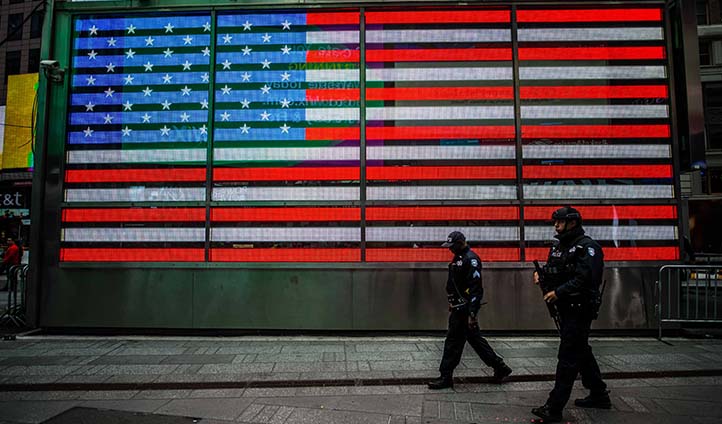Menu
Hot-Topics
July 2, 2025 | SCOTUS Sides With Employee in Reverse Discrimination Case
Month: March 2018

March Ends with Oral Arguments in Six Cases
The U.S. Supreme Court ended the month with oral arguments in six cases. The majority of the issues before the justices involved criminal law, including the use of physical restraints and sentencing guidelines. The Court also considered yet...

Supreme Court Hears Arguments in Potential Blockbuster Free Speech Case
The U.S. Supreme Court heard oral arguments in three cases this week, including National Institute of Family and Life Advocates v. Becerra. The high-profile case involves two controversial issues — free speech and abortion. While we will have to aw...

Landmark Takings Case of Lingle v Chevron USA Inc
In Lingle v Chevron USA Inc, 544 U.S. 528 (2005), the U.S. Supreme Court overruled the precedent established in Agins v. City of Tiburon, 447 U. S. 255 (1980), which held that a regulation does not amount to an unconstitutional taking "if it does...

SCOTUS Decision Limits Whistleblower Protection under Dodd-Frank in Digital Realty Trust v Somers
The U.S. Supreme Court recently held that Dodd-Frank’s anti-retaliation provision does not extend to individuals who have not reported a federal securities violation laws to the Securities and Exchange Commission (SEC). The Court’s decision in Di...

Rubin v Islamic Republic of Iran: Terror Victims Lack Recourse
In Rubin v Islamic Republic of Iran, 583 U. S. ____ (2018), the U.S. Supreme Court held that Section 1610(g) of the Foreign Sovereign Immunities Act of 1976 does not provide a freestanding basis for parties holding a judgment under Section 1605A to a...

Class v United States (2018) Guilty Plea Does Not Bar Federal Criminal Defendant from Challenging Constitutionality of Statute of Conviction
Facts of Class v United States A federal grand jury indicted Rodney Class for possessing firearms in his locked jeep, which was parked on the grounds of the United States Capitol in Washington, D. C. Appearing pro se, Class asked the Distric...
Previous Articles
Supreme Court Rejects Moment of Threat Doctrine in Deadly Force Case
by DONALD SCARINCI on June 30, 2025
In Barnes v. Felix, 605 U.S. ____ (2025), the U.S. Supreme Court rejected the Fifth Circuit Court o...
SCOTUS Holds Wire Fraud Statute Doesn’t Require Proof Victim Suffered Economic Loss
by DONALD SCARINCI on June 24, 2025
In Kousisis v. United States, 605 U.S. ____ (2025), the U.S. Supreme Court held that a defendant wh...
SCOTUS Holds Wire Fraud Statute Doesn’t Require Proof Victim Suffered Economic Loss
by DONALD SCARINCI on June 17, 2025
In Kousisis v. United States, 605 U.S. ____ (2025), the U.S. Supreme Court held that a defendant wh...
The Amendments
-
Amendment1
- Establishment ClauseFree Exercise Clause
- Freedom of Speech
- Freedoms of Press
- Freedom of Assembly, and Petitition
-
Amendment2
- The Right to Bear Arms
-
Amendment4
- Unreasonable Searches and Seizures
-
Amendment5
- Due Process
- Eminent Domain
- Rights of Criminal Defendants
Preamble to the Bill of Rights
Congress of the United States begun and held at the City of New-York, on Wednesday the fourth of March, one thousand seven hundred and eighty nine.
THE Conventions of a number of the States, having at the time of their adopting the Constitution, expressed a desire, in order to prevent misconstruction or abuse of its powers, that further declaratory and restrictive clauses should be added: And as extending the ground of public confidence in the Government, will best ensure the beneficent ends of its institution.
Awards





